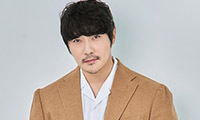At the low end of the spectrum are people who constantly talk about people usually not about very flattering things. A step higher, there are people who talk about things their beautiful house, an expensive car, a fur coat, etc. At a still higher level, there are those who talk about events such as the Olympic Games, an orchestral performance, an election, etc.
At the highest level, there are people who talk about ideas such as truth, beauty, liberty, equality, justice, democracy, religion, discovery or an invention of significance. For sure, we will never run out of things to talk about.
Getting back to talking about people, is it necessarily bad if we say good things about people? Perhaps not. With this caveat, I would like to share with you a few stories about people whom I would like for you to know.
MRS. KANG
Dr. Kang, Mrs. Kang? husband, was the first Korean lawyer in America. In the 1900?, however, there were hardly any Koreans who needed a lawyer, and certainly Americans would not hire a foreigner to represent them in an American court of law.
Dr. Kang was too proud to perform menial work, so Mrs. Kang worked in a Chinese laundry, washing and ironing, so that their family of five could eke out a living. I am sure you can imagine the tough life her family must have endured. As tough as their lives were, she was the first Korean to take an interest in our welfare when we first arrived in America.
Our family arrived in Chicago in the latter part of December, 1940, and I was wearing spring clothing. Recognizing that the pastor of her church did not have sufficient funds to buy winter clothing for his children, as indigent as her family was, Mrs. Kang took us to the corner clothing store (I remember it well, the name of the store was the "Mark?") and bought me my first set of winter clothes. In fact, I grew up wearing her sons hand-me-down clothing.
Mrs. Kang, being an enlightened woman, also recognized the tough time that my mother was having coping with the new American environment and, more significantly, fending off criticisms of the under-educated parishioners that made up the resident membership of the Chicago? small congregation.
This strong willed lady, by working sometimes beyond human endurance, sent her three children on to college. Whereas her husband could not find work in his chosen field, one of her sons just one generation later successfully practiced law in the City of Los Angeles until his recent retirement. Her daughter was the homecoming queen at the Illinois Wesleyan University in Bloomington, Illinois, and she still resides in Chicago with her successful Korean dentist husband.
Mrs. Kang lived a life of working hard and helping others. To the end of her days, she was blessed with a cheerful disposition, good health and a wonderful family; she lived long enough to celebrate her 73rd wedding anniversary. She is someone that always gave from her heart. She is someone that is very special to me, someone that I would like for you to know.
LIEUTENANT SULLIVAN
Lieutenant Sullivan was a Marine? Marine, a designation reserved for the finest. He went through the U. S. Marine Corps Officers Training School and learned everything there was to know about leading men through combat and taking care of the men under his command. He was my platoon commander during my first four months stay in Korea in 1952-53.
Our Company was bivouacked on the southern banks of the wide ImJin River running along the 38th parallel line. Portions of the river were narrow enough for possible crossing attempts by the North Korean Army. These were also the sectors where their mortar bombardments could reach across.
Because of the potential for crossing, one squad was assigned to guard the area. Occasionally, we would receive in-coming mortar. Believe it or not, we were delighted to receive the enemy fire because, by regulation, we would receive "combat pay" if the area we were occupying received 20 or more rounds per month.
When we had received the require 20 rounds, Lt. Sullivan would rotate a different squad into the area. His report noted, officially, that the men were rotated so as not to expose some Marines in "Harm? Way" more than others, thereby spreading the jeopardy. But, of course, we knew otherwise. He was our leader; he took care of us. We respected him; we would go to hell for him.
One day, our platoon was carrying heavy lumber across an open area to build another bunker on the far side of the open area. That? when the bombardment started. We were subjected to greater rounds of mortar than usual, and some of us were hit, including the Lieutenant.
The Purple Heart, a military medal, is awarded for receiving a wound in combat. Whether the wound is slight or it causes death, the award is the same. It is a medal held in high esteem; it signifies that a Marine has put his life on the line for his country and for what he believes in. The citation looks good in one? military record and the medal looks good on one? chest.
Recognizing that our wounds were only superficial, we all declined to accept the medal, all except one the Lieutenant. The chill between the Lieutenant and us was instant and it was deep. For weeks after the incident, we continued to obey his orders, but things were never the same again. Within a month, he requested a transfer and he was gone; it was a loss for all of us.
In retrospect, if I have any regrets about my military service, it is this one instance, where if I had been more mature, if I had at that earlier stage of my life been more of a man, more of a leader, I could have done something to give this episode a different direction.
This experience has added much to my personal development. I learned, later in life, that it is important to speak up and say the right things, at the right times, and do the right things, if at all possible, at all times.
Unlike us, the Lieutenant was a career Marine. The Purple Heart would stand out in his record; it would validate his combat experience. It was an important career move, and an important part of his resume.
I sometimes wonder how he is, and how his Marine Corps career has progressed. He was a good officer and he was a wonderful man, someone I would like for you to know.
DR. OH
Dr. Kong Dan Oh is a Research Staff Member at the Institute for Defense Analysis and a Senior Fellow at the Brookings Institution. She conducts policy research in South and North Korean politics and economy, inter-Korean relations and unification, and U. S. foreign and security policies toward East Asia. She has published more than 50 book chapters, journal articles and conference papers.
Dr. Oh earned a B.A. in Oriental History at SoGang University and an M.A. in Korean Literature at Seoul National University. She subsequently earned an M.A. and a Ph.D. in Asian Studies at the University of California, Berkeley.
I first met her on November 16, 2000, at a presentation of the Chicago Council of Foreign Relations. The promotional material for the event indicated that Dr. Oh would speak on the subject "North Korea Through the Looking Glass." The previous time I was at the Council was when, several years ago, the Republic of Korea President Kim, Young- Sam was the speaker.
The presentation was well attended. The disappointment was that only three Koreans were in attendance.
During the question and answer period that followed her presentation, I posed a question about President Clinton? desire to visit North Korea during the midst of the current South-North Korean dialogue relative to Korean reunification, in an attempt to enhance his dismal foreign policy legacy.
I argued that when the U. S. gets involved with the North Koreans, they ignore the South Koreans thereby hurting the progress the Koreans themselves are making toward reunification, that people in the know generally agree that real progress, in any discussion, can only be achieved by the two parties that are directly and intimately affected.
My question was intended to put President Clinton in an unfavorable light, but it also had the effect of putting Dr. Oh in an awkward position; after all, being a consultant to the U. S. government, she is, in a way, working for President Clinton.
She answered the question in a way that responded to the question, but in a way that put no one in a bad light. She said that North Korea is not ignoring South Korea and the needs that the process demands; it is simply that North Korea does not have the diplomatic and the managerial capacity to deal with more than one major issue at a time.
During the midst of her presentation, earlier, an elderly gentleman pleaded for her to speak a little slower. Dr. Oh responded to this request with aplomb and humor. She said she would try; that "I speak broken English but I talk fast because, during high level briefings, the advisors are always reminded that we have 5 minutes. How can you advise on subjects of world-wide implications in 5 minutes? That? why we all learn to speak as fast as we can."
Knowledge, perception, humor and humility; what a great combination. We learn simply by being in the presence of people like Dr. Oh, and I wanted you in the crowd with me; and I wanted you to know her.
스마터리빙
more [ 건강]
[ 건강]이제 혈관 건강도 챙기자!
[현대해운]우리 눈에 보이지 않기 때문에 혈관 건강을 챙기는 것은 결코 쉽지 않은데요. 여러분은 혈관 건강을 유지하기 위해 어떤 노력을 하시나요?
 [ 건강]
[ 건강]내 몸이 건강해지는 과일궁합
 [ 라이프]
[ 라이프]벌레야 물럿거라! 천연 해충제 만들기
 [ 건강]
[ 건강]혈압 낮추는데 좋은 식품
[현대해운]혈관 건강은 주로 노화가 진행되면서 지켜야 할 문제라고 인식되어 왔습니다. 최근 생활 패턴과 식생활의 변화로 혈관의 노화 진행이 빨라지고
사람·사람들
more많이 본 기사
- 새해 첫날 대형화재 참사… 155명 … 1
- 해외 송금시 1% 세금 1월1일부터 부과 개시
- “키스, 불륜 맞지만 숙행은 억울해”..상간남 입 열었다
- ‘255만 7,047명’ 미국내 한인… 1
- 나나, 강도 피해→역고소 사건에 입 열었다.. “말도 안 되는 상황”
- ‘김태희♥’ 비, 난리통 연예계 속 의미심장 일침.. “나태하면 사건·사고 나”
- “새해 복 많이 받으세요!” 2026 ‘병오년’ 힘찬 출발
- KCM, 세 아이 아빠 됐다…지난달 셋째 득남
- 또 일가족 살해·자살 4명 시신 발견 ‘비극’
- [신년 사설] 붉은 말의 힘찬 기상·역동성으로 도전과 성취를
- 이국주 “AI와 결혼한단 말 이해..나도 친해져 조언까지”
- 한인 마켓에서 사라진 ‘플라스틱 봉투’
- 시니어 ‘최소인출’ 미준수… 세금 불이익
- 오바마케어 보조금 결국 종료… 새해 최대 쟁점으로
- 내년부터 ‘스튜어드십 코드’ 강화
- CD 금리 하락, 주식은 불안… ‘원금 지키며 시장에 참여하는 방법’
- 새해초 폭우 강타… 엔젤레스 산악도로 붕괴
- 변종 수퍼독감 ‘비상’ 사망자 3,100명 넘어
- [손영아의 문화산책] ‘슈만의 연가’… 170년 전 멈춘 시간, 끝나지 않은 사랑
- 온라인에 가짜 광고 ‘렌트 사기’ 기승
- 유명 성우 송도순 별세
- [금요단상] 차가운 길, 이불 한 장의 온기
- 비트코인, 연 하락마감 3년만에 내림세로 돌아
- LA 등 배치 주방위군 ‘불법’… 완… 1
- [신년 휘호] 光明大道 (광명대도)
- [미리 보는 CES 2026 ] “올해 핵심 트렌드… AI·로봇·모빌리티·디지털 건강”
- 미군에 쫓기는 베네수行 유조선 감싼 … 1
- 연말 샤핑 ‘역대 최고’ 사상 첫 1조달러 돌파
- [김재천 칼럼] 2026년, 미·중 대타협은 가능할까
- 류지현 감독 “반드시 미국으로 간다”
- 생명보험은 이제 ‘삶’을 위해 더 필요해진다
- [조지 F. 윌 칼럼] AI 투자 붐이 걱정된다면?… 역사적 맥락을 보라
- 트럼프, 가구 관세 인상 1년간 연기
- 대한항공, 새해 첫 고객맞이 행사
- [만화경] 33년만에 퇴역하는 장보고함
- “美, 평택기지 비행대대 비활성화”…주한미군 감축 관련성 주목
- 연준 12월 금리인하… ‘만장일치 실패’
- “유튜브에 아동정보 불법 무단제공”
- ‘8세난 소년의 눈으로 본 어른들의 세상’
- 한국, 북중미 월드컵서 원정 8강 도전… ‘손흥민 라스트댄스’
- ‘우크라서 날아온 감사의 국기’
- 촛농처럼 흘러내리다 석벽처럼 솟아올라… 단양, 석회동굴의 천태만상
- 멕시코, 50%까지 관세 한국 등 FTA 미체결국
- 뉴욕증시 뜨거웠던 2025년 ‘아듀’… 새해도 기대
- [새 영화] 고독에 관한 얘기이자 인간관계의 필요성 강조한 드라마
- 오늘 LA 총영사관 시무식 한인회·상의 5일 신년하례
- LA카운티 ‘원숭이두창’ 감염 발생
- [ 뉴욕증시 2025년 결산] 3대 지수 3년 연속 상승… AI 성장 ‘호재’
- [신년 축시] 새해 아침
- [왈가 왈부] 이혜훈 ‘정말 널 죽였으면’ 폭언, 장관직 수행 가능할까요
1/5지식톡

-
 미 육군 사관학교 West Poin…
0
미 육군 사관학교 West Poin…
0https://youtu.be/SxD8cEhNV6Q연락처:wpkapca@gmail.comJohn Choi: 714-716-6414West Point 합격증을 받으셨나요?미 육군사관학교 West Point 학부모 모…
-
 ☝️해외에서도 가능한 한국어 선생님…
0
☝️해외에서도 가능한 한국어 선생님…
0이 영상 하나면 충분합니다!♥️상담신청문의♥️☝️ 문의 폭주로 '선착순 상담'만 진행합니다.☎️ : 02-6213-9094✨카카오톡ID : @GOODEDU77 (@골뱅이 꼭 붙여주셔야합니다…
-
 테슬라 자동차 시트커버 장착
0
테슬라 자동차 시트커버 장착
0테슬라 시트커버, 사놓고 아직 못 씌우셨죠?장착이 생각보다 쉽지 않습니다.20년 경력 전문가에게 맡기세요 — 깔끔하고 딱 맞게 장착해드립니다!장착비용:앞좌석: $40뒷좌석: $60앞·뒷좌석 …
-
 식당용 부탄가스
0
식당용 부탄가스
0식당용 부탄가스 홀세일 합니다 로스앤젤레스 다운타운 픽업 가능 안녕 하세요?강아지 & 고양이 모든 애완동물 / 반려동물 식품 & 모든 애완동물/반려동물 관련 제품들 전문적으로 홀세일/취급하는 회사 입니다 100% …
-
 ACSL 국제 컴퓨터 과학 대회, …
0
ACSL 국제 컴퓨터 과학 대회, …
0웹사이트 : www.eduspot.co.kr 카카오톡 상담하기 : https://pf.kakao.com/_BEQWxb블로그 : https://blog.naver.com/eduspotmain안녕하세요, 에듀스팟입니다…
케이타운 1번가
오피니언
 손영아 문화 칼럼니스트 / YASMA7 대표
손영아 문화 칼럼니스트 / YASMA7 대표 [손영아의 문화산책] ‘슈만의 연가’… 170년 전 멈춘 시간, 끝나지 않은 사랑
 김재천 서강대 국제대학원 교수
김재천 서강대 국제대학원 교수 [김재천 칼럼] 2026년, 미·중 대타협은 가능할까
 조지 F·윌 워싱턴포스트 칼럼니스트
조지 F·윌 워싱턴포스트 칼럼니스트 [조지 F. 윌 칼럼] AI 투자 붐이 걱정된다면?… 역사적 맥락을 보라
 이희숙 시인·수필가
이희숙 시인·수필가 [금요단상] 차가운 길, 이불 한 장의 온기
 한영일 / 서울경제 논설위원
한영일 / 서울경제 논설위원 [만화경] 33년만에 퇴역하는 장보고함

[왈가 왈부] 이혜훈 ‘정말 널 죽였으면’ 폭언, 장관직 수행 가능할까요
 정숙희 논설위원
정숙희 논설위원샴페인, 마지막 날과 첫날을 위하여
 조지 F·윌 워싱턴포스트 칼럼니스트
조지 F·윌 워싱턴포스트 칼럼니스트 [조지 F. 윌 칼럼] 저무는 2025년에 안도의 한숨
 김동찬 시민참여센터 대표
김동찬 시민참여센터 대표 [미국은 지금] 책임 있는 자본 없으면 커뮤니티 미래도 없다
1/3지사별 뉴스

지방세 공제한도 1만→4만달러로 상향
2026년 새해에도 뉴욕과 뉴저지 한인들의 일상에 크고 작은 영향을 미치는 다양한 규정과 법규가 새롭게 바뀌게 된다. 당장 1일부터 뉴욕시 최…
■ 사고- 한동대·뉴욕한인청소년센터 국제여름캠프

건국 250주년 워싱턴 모뉴먼트 라잇쇼
워싱턴 DC 내셔널 몰 중심에 위치한 워싱턴 모뉴먼트(Washington Monument)가 화려한 불빛으로 장식됐다. 지난 31일 새해 카운…
“소확행<작지만 확실한 행복> 즐겨요”

병오년 2026년 시작을 알리는 꽃가루
지난달 12월 31일 뉴욕 타임스퀘어 에서 열린 볼 드롭 행사에서 찬란한 볼이 새해를 알린 직후 2026년 1월 1일 0시를 기해 이날 메인 …
중부 캘리포니아 ‘한인 이민사’ 나왔다

오늘 하루 이 창 열지 않음 닫기 




















































.png)


댓글 안에 당신의 성숙함도 담아 주세요.
'오늘의 한마디'는 기사에 대하여 자신의 생각을 말하고 남의 생각을 들으며 서로 다양한 의견을 나누는 공간입니다. 그러나 간혹 불건전한 내용을 올리시는 분들이 계셔서 건전한 인터넷문화 정착을 위해 아래와 같은 운영원칙을 적용합니다.
자체 모니터링을 통해 아래에 해당하는 내용이 포함된 댓글이 발견되면 예고없이 삭제 조치를 하겠습니다.
불건전한 댓글을 올리거나, 이름에 비속어 및 상대방의 불쾌감을 주는 단어를 사용, 유명인 또는 특정 일반인을 사칭하는 경우 이용에 대한 차단 제재를 받을 수 있습니다. 차단될 경우, 일주일간 댓글을 달수 없게 됩니다.
명예훼손, 개인정보 유출, 욕설 등 법률에 위반되는 댓글은 관계 법령에 의거 민형사상 처벌을 받을 수 있으니 이용에 주의를 부탁드립니다.
Close
x